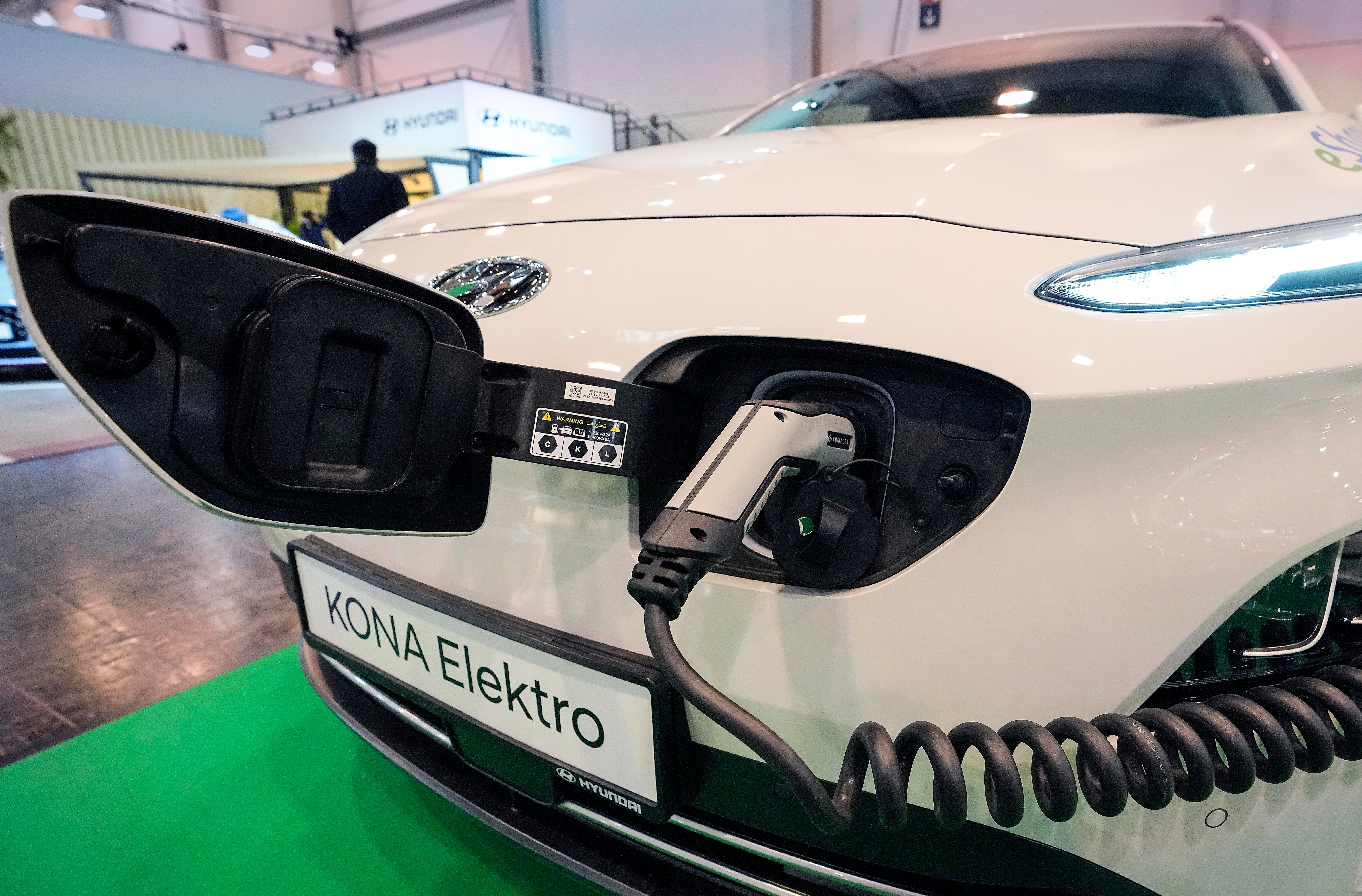The climate crisis spells both risk and opportunity for the financial world
How the next generation of solar, wind and EV companies will fare in the coming year is one of the most exciting parlour games in the City, on Wall Street and in Silicon Valley this holiday season, writes David Callaway


Veterans of the United Nation’s annual climate summits were stunned at Cop26 in Glasgow last month by the number of financial executives in attendance.
Bankers, fund managers and venture capitalists have been steadily increasing at these summits for years. But the surge in environmental, social and governance investing since 2019 turned what had always been an academic and regulatory meeting into what one called a “mini-Davos,” with side meetings and private audiences with world leaders.
Money-making opportunities around renewable energy, electric vehicles and new technologies to suck dangerous carbon from the atmosphere have captured the imagination of a new generation of investors. But it took Covid, and the global shutdown it produced last year, to really focus the minds of the financial elite on the flip side of that opportunity – the risk.
Greta Thunberg and her youth protesters might object, but in addition to being an existential threat, climate change is a $22 trillion financial problem. That’s the amount of money the world’s banks, insurance companies and asset managers currently have tied up in the oil and gas industry, according to Moody’s Investors Service. More than half of that is in outstanding bank loans, while the rest is in investments.
While shutting down the world’s fossil fuel industry is viewed as the ultimate goal for many young climate enthusiasts, how this can be done without creating a global financial crisis will be one of the key flash points of the emergency in 2022.
Global leaders, including US President Joe Biden and the UK’s prime minister, Boris Johnson, have been largely impotent against the forces of fossil fuels, in large part because new, renewable strategies can’t keep up with the developing world’s need for more energy, such as in China and Africa.
Bankers and financial elites have a poor track record as well, having blown up the economic world 15 years ago with dangerous real estate derivatives in the global financial crisis. Nobody went to jail, but several major companies collapsed and it took years for economies to recover.
Still, it was some of the young survivors of that crisis who have now grown to dominate the next phase of the energy transition. Companies such as First Solar, Sunpower, and yes, Tesla, can thank investors who took a shot on them back then.
Who the next generation of these solar, wind and EV companies will be and how they will fare in the coming year is one of the most exciting parlour games in the City, on Wall Street and in Silicon Valley this holiday season.
In terms of where the action will be, London leads Europe in the number of climate tech startups, and is second to the San Francisco Bay Area overall, according to a recent report by London & Partners, a group which promotes financial activity in the City. London’s Square Mile is responsible for more than half the money raised for climate tech funds in the past five years. Wall Street, home to big new climate players such as BlackRock, is also climbing the list.
A third leg of the financial stool, along with risk and opportunity, is aid – in particular how wealthy nations can help poorer ones, such as island states, afford economic transition. Institutions such as the International Monetary Fund and the World Bank, along with central banks such as the US Federal Reserve, have been criticised for not doing enough to facilitate the billions in aid that will be required.
Much of the talk now is about either loosening aid restrictions, or tapping new sources of private capital flows. Banks and asset managers banding together to buy up old oil and gas wells and wind them down cleanly, for example.
To keep up to speed with all the latest opinions and comment sign up to our free weekly Voices Dispatches newsletter by clicking here
Twelve months ago, as the dark days of pandemic 2020 gave way to the hope of vaccines in 2021, many climate leaders, such as John Kerry in the US, said this year had to be the pivotal year for the world to finally start acting on climate change.
It wasn’t the pivotal year, and neither will 2022 be. If anything, the conditions for a backlash against the climate emergency are developing as nations struggle with high oil prices and lack of energy resources. Australia and China come to mind. Soaring carbon prices in Europe this holiday season also hurt, by forcing polluters to switch back to coal from more expensive gas.
The ESG story is getting winded as well, and starting to succumb to charges of “greenwashing” and financial manipulation as more and more companies pledge to move to net zero emissions. Investors are in for a rocky ride next year.
But the forces that made climate change a financial issue in the past few years will continue to evolve in 2022. As the risk becomes more identifiable, the opportunities also become clearer. Climate summits may never be the same, but at least the financial world and the political ones are finally pulling on the same oars.
David Callaway is founder of Callaway Climate Insights and former editor-in-chief of USA Today
Join our commenting forum
Join thought-provoking conversations, follow other Independent readers and see their replies
Comments
Bookmark popover
Removed from bookmarks